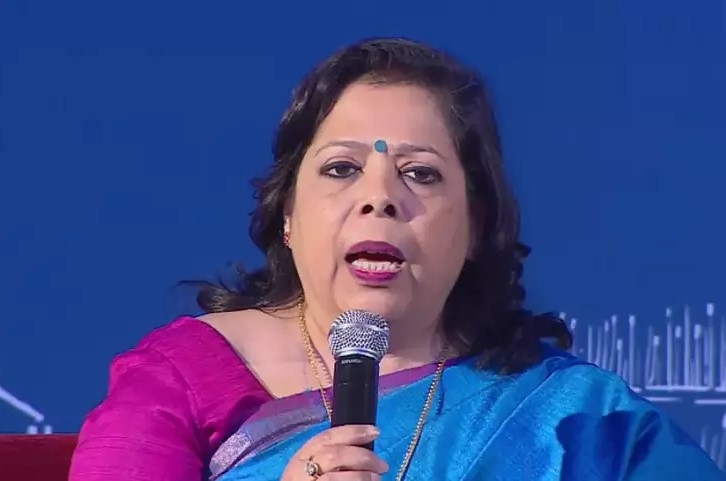New Delhi, Dec 7, 2024: India has become one of the countries that are at the forefront in terms of positive, meaningful actions to combat the problem of climate change and there is a need to integrate sustainability in production value chain to enable consumers choose sustainable products and services, said Ministry of Environment, Forest and Climate Change Secretary Leena Nandan.
“We have not only fulfilled the commitments made as part of NDCs, updated them in 2022 but also set the bar consistently higher for ourselves in terms of ambitious climate action,” she said at the Resource Efficiency and Circular Economy Industry Coalition (RECEIC) Roundtable on ‘Collaborative Actions for Resource Efficiency & Circular Economy Transition’, organized by FICCI and UNDP.
Nandan said India has brought a new philosophy to the world in terms of the change in consumption and demand that can equally play a very important role when it comes to meaningful actions that can address the problem of climate change.
She stated that the Extended Producer Responsibility (EPR) launched by the government under the ambit of the Environmental Protection Act, has given a momentum to circularity. “But it is very important that we do not restrict ourselves to looking at the EPR framework simply as a mandatory obligation, but rather adopt and adapt it in a manner that suits the principles of production by the companies. Circularity has been given a boost by the EPR framework,” she noted.
The Secretary also added that the government is not looking at the EPR simply as an environmental rule and regulation but looking at it in the larger context including consumer behaviour. The Ecomark rules, recently announced by the ministry, promote sustainable consumption and eco-friendly production with strict environmental standards.
“They are designed to give not only a nudge to consumer behaviour, but also guide them. The Eco mark would distinguish the companies for the consumers. We need to create awareness and desire among consumers to opt for these products and choices,” she emphasized.
Nandan urged the corporate sector on the need of fostering the spirit of innovation among young minds and encouraging entrepreneurship among start-ups.
Manish Sharma, Chair, RECEIC and Chairman, Panasonic Life Solutions India & South Asia, said 3 focused working groups are already working under RECEIC and we are going to start working groups on End of life Vehicle, Critical Minerals and Lithium ion batteries soon.
Dr Angela Lusigi, Resident Representative, UNDP India, said, “We are navigating complex challenges in our time and inclusive resilience along with sustainable development are under threat. Therefore, we need pathways that balance economic growth with ecological boundaries, ensuring we protect options for future generations. “The private sector is a powerful force for driving systemic change, particularly when innovation and inclusivity are placed at the center of the circular economy transition.”
‘RECEIC Compendium on Circular Business Models’ was released during the event. Viral Thakker, Partner & Leader, Sustainability and Climate, Deloitte shared his perspective on the RECEIC compendium on Circular Business Models.
During the Roundtable, FICCI as Secretariat of RECEIC and UNDP India signed a Memorandum of Understanding (MoU) which aims to advance the agenda of Circular Economy, Climate Action, and Biodiversity Conservation, focusing on sustainable consumption, resource efficiency, and eco-friendly practices across industries. Key areas of cooperation include policy advocacy, knowledge sharing, inclusive development, and corporate sustainability. Together, FICCI and UNDP will foster synergies to promote nature-positive business practices, empower marginalized communities, and enhance global outreach for the Resource Efficiency and Circular Economy Industry Coalition (RECEIC).




















.jpg)



